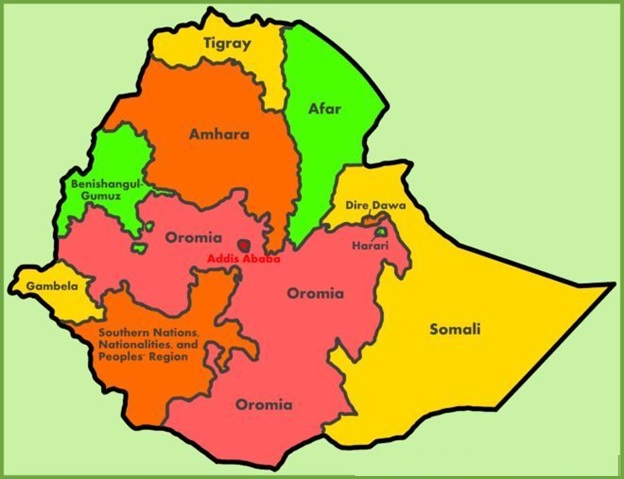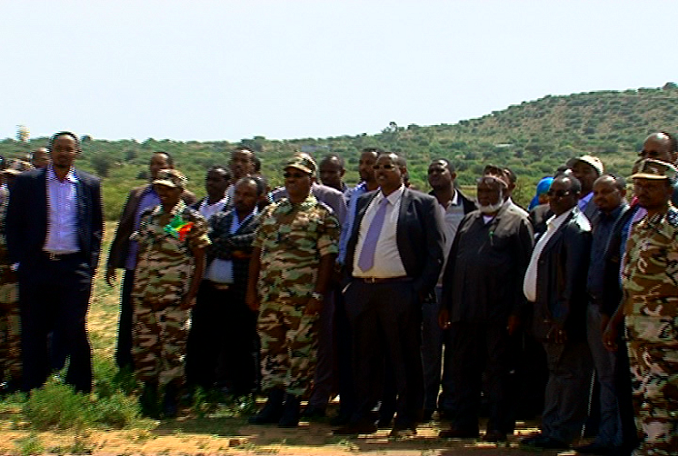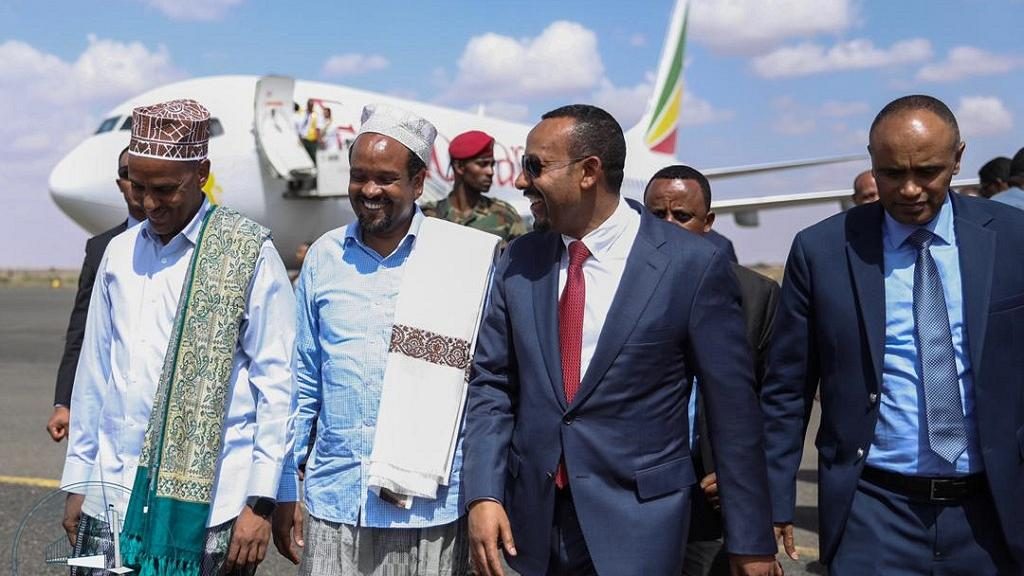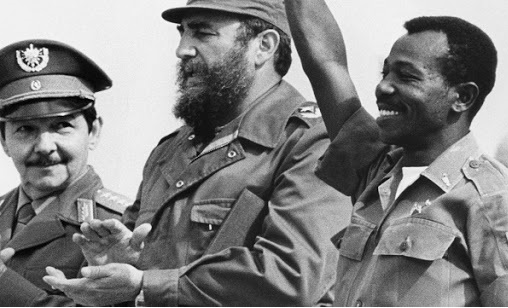By Mohamed Abdi
People of Somali regional state have gone through hard conditions and heightened times and their current situation is pregnant with both good and bad indications; but they must unite and seize every opportunity if they want to overcome difficult circumstances that are awaiting them, or else they will suffer forever.
Prolonged Injustice
For too long, the Somali region has suffered under Ethiopia’s successive regimes. The country deprives the Somali people of their rights, disdains their way of life, and denounces their continual struggle. And the Somali people’s plight began when Ethiopia annexed their region, and made it a peripheral one. Indeed, Great Britain masterminded the Somali people’s woes by handing over their region to Abyssinia. Consequently, the region’s residents have tasted everlasting bitterness and endured all sorts of hardships and humiliations, and history is full of gruesome atrocities meted out to the region’s people, at different times by varied regimes.

To fast-forward, when the Tigray led movement came to power in 1991, after ousting President Mingistu Haile Marriam, they introduced an ethnic based federalism and enshrined it in the country’s constitution. This federalism was to put power in Ethiopia’s ethnic groups in relation to administering their own affairs, but the federalism was not implemented properly. Clearly, the new constitution stipulated a statute that permitted particular federal states to secede from the country after fulfilling required conditions (The Tigrays have not trusted a unitary state in Ethiopia). Ethiopia adopted a new flag and became a federal state, albeit on paper.
Because of the adopted, ethnic federalism, some of the country’s regions benefited, the Somali region being one of them. For the first time, the region got an autonomous status and used its own language (Somali) for the region’s administration. With an enthusiastic population, the Somali language ploughed ahead and portrayed an atmosphere of unity and uniqueness. Amazed by the fact that nobody needed Amharic language and its interpreters, the Somali people in the region breathed a fresh air and saw a new dawn as members of their own were school teachers, nurses, administrators, and the like. Truly, the region would greatly benefit from the ethnic federalism, if executed correctly.
Atrocity of the Century
Soon after, the Tigray administration clashed with Somali opposition groups and emptied its anger on the region’s population. The situation worsened after the administration installed President Abdi-Iley and unleashed him on the beleaguered people in the region. Abdi-Iley, under the auspices of his masters, created an armed force in the region and called it “Liyu Police”. He told the region’s residents that the force would combat opposition groups and protect civilians’ lives and properties. But alas, that was a big lie, as the armed force turned out to be an unscrupulous one. He mobilized the Liyu Police and made them at his arsenal, summoning them whenever he needed them, and against whoever he loathed. They indiscriminately killed thousands of civilians.

Somali State
President Abdi-Iley’s regime prided itself on cruelty. The regime loved to kill people arbitrarily, the regime loved to throw innocent civilians in toxic prisons, the regime loved to banish people from their own dwellings and rob them of their lands, and the regime loved to tarnish people’s integrity by naming and shaming them unjustly. For example, people would be forced to stand in front of big gatherings and admit offenses they did not commit. Out of fear, many people confessed some unheard-of felonies.
The dictator president destroyed entire towns, turning their populations into orphans and widows, unable to fend for themselves. Furthermore, thousands of innocent civilians fled their homes, and ended up in refugee camps with deplorable conditions. To illustrate a situation, for instance, Abdi-Iley’s henchmen would get together and watch helpless civilians delightfully as they were being punished. Unable to tolerate the severity of the punishments, the subdued civilians would whimper and wail, but the perpetrators would not care. What happened in the infamous “Jeel Ogaaden” is a case in point, and sums up the scope of the anguish the region’s people underwent.
The tyrant was eventually removed, making the region’s residents rub their hands with glee. Really, he had plunged the Somali region in an interminable turmoil until he was ousted in August 2018. The wind of change that swept Ethiopia also breathed into the Somali region, and banished him and his henchmen. His regime implemented some faulty projects here and there in the region; nevertheless, the corrupt administration pilfered millions of dollars meant to mitigate the misery of the starving people in the region. Those carried out projects in the region were disproportionate with allocated funds, as the funds were either put aside for a personal use, or given to undeserving, diaspora individuals. People were shocked to discover that close relatives and friends of Abdi-Iley had stolen huge amounts of the region’s funds.
Better Conditions
It has been more than a year and a half since Abdi-Iley was expelled, and many things have changed for the better. President Mustafe Omer has taken the helm of the region, but inherited a region in shambles. However, he has done a lot since he came to power. For instance, the current president broke the ban that Abdi-Iley’s regime put on Islam, emboldened the region’s people to practise their religion and boast of their Somali identity, freed many prisoners, and shut down the notorious “Jail Ogaaden”.
Unlike Abdi-Iley, President Omer is equipped with solid education and empathy, so he has begun to pick up the pieces and put the shuttered region together by empowering his administration and implementing the hitherto Ethiopia’s ethnic based federalism in the region by enabling communities to govern their own constituencies. Moreover, it is the first time the region’s people have voiced their concerns, and exercised their freedom of speech, without fearing reprisals or repercussions. In other words, when people speak their minds, they are unafraid of belittlement, of punishment, or of imprisonment.
Looming Challenges
But massive challenges are waiting for the current administration. The administration needs to prevent the region from losing lands to Oromo and Afar states, to continue mending differences with the aforesaid states, and to resettle thousands of Somali families uprooted by the war between the Somali and Oromo communities. Other grievances include unresolved confiscated lands in Jigjga, not apprehended perpetrators, and unattended projects.
Another challenge is the identity crisis of the Somali region. Neither one clan nor a particular philosophy owns the region. It is for all Somali clans who have resided there since time immemorial. Hence, the name “Somali” must be preferred to all other names, including “Ogaden”, a name given to the region by the British colonialist, whose main intention was to divide and disjoint the society.
After many years of fighting Ethiopia, Ogaden National Liberation Front (ONLF) has laid down its guns and struck a peaceful agreement with Ethiopia led by Prime Minister Abiy Ahmed. Now, the front has transitioned into a registered political party, but still retains its controversial name. This is a colonial, divisive name, but the front is hung up on it. The region’s people need a name that can reflect their collective identity and hold them together, not a name that divides them.

Another peril is the fact that nobody knows what the newly formed Prosperity Party (PP) holds for the Somali region. The Somali region’s party has already merged with PP, initiated by the country’s prime minster, who recently glorified Mingistu’s Dergue regime and said that monuments honouring Ethiopian heroes in 1977 war with Somalia ought to be mounted on Karmarda Mountain, which is on the outskirts of Jigjiga City.
He claimed that Ethiopian brave soldiers defeated Somalia at Karmarda pass. But Colonel Abiy Ahmed got the fact wrong. Rather, Somali National Liberation Front (WSLF) fighters brought Ethiopia to its knees and completely destroyed the mighty military of the Dergue. Within fourteen days, they, accompanied by Somali army, overrun the heavily fortified Karamarda pass in Jigjiga.

Later on, heavily equipped Cuban troops and Soviet advisors came to side with Ethiopia. Then the Somali army withdrew, as it could not withstand some of the world powers. Sadly, and after re-entering Jigjga, the Dergue ordered the execution of thousands of Somali men under the mountain. The prime minister’s naked statement was refuted by President Mustafe Omer, who said that Somalis’ history should not be written by others, and that Somali people engaged in ‘77s war were martyrs who lost their lives and limbs to preserve their people’s dignity.
Conclusion
Since the past of the Somali region has been nothing but a catalogue of killing, and cruelty, Prime Minster Abiy Ahmed must not follow the footsteps of his predecessors. And President Mustafe Omer is obliged to pull the region’s people together and pave the way for a cohesive, prosperous society.Polarization will pulverise the region’s people, and put them in a bad situation. Since the region is emerging from a prolonged period of deprivation, the present administration needs to establish beneficial projects that can uplift the residents’ living conditions. In addition, the region has to stand its ground when it comes to facing existential threats. Nobody has the right to bury or belittle the Somali people’s history and sacrifice concerning protecting their identity and integrity. What the region’s people need are concerned, bold leaders who can speak for the dignity and betterment of their subjects, not stooges that can pit their people against one another, and serve the interest of others.
Together with informed, empowered people, the Somali regional state can become a place where the general public can live in peace and dignity. And it is imperative that the region’s residents understand that they are a very small number in the eyes of Ethiopia. Therefore, they must choose unity over division to withstand any calculated pressures put on them.
Mohamed Abdi
Email:[email protected]
————-
Mohamed Abdi is a Somali-Canadian Writer.
We welcome the submission of all articles for possible publication on WardheerNews.com. WardheerNews will only consider articles sent exclusively. Please email your article today . Opinions expressed in this article are those of the author and do not necessarily reflect the views of WardheerNews.
WardheerNew’s tolerance platform is engaging with diversity of opinion, political ideology and self-expression. Tolerance is a necessary ingredient for creativity and civility.Tolerance fuels tenacity and audacity.
WardheerNews waxay tixgelin gaara siinaysaa maqaaladaha sida gaarka ah loogu soo diro ee aan lagu daabicin goobo kale. Maqaalkani wuxuu ka turjumayaa aragtida Qoraaga loomana fasiran karo tan WardheerNews.
Copyright © 2024 WardheerNews, All rights reserved


